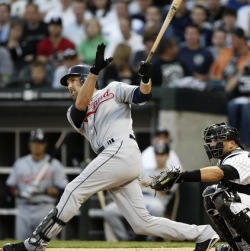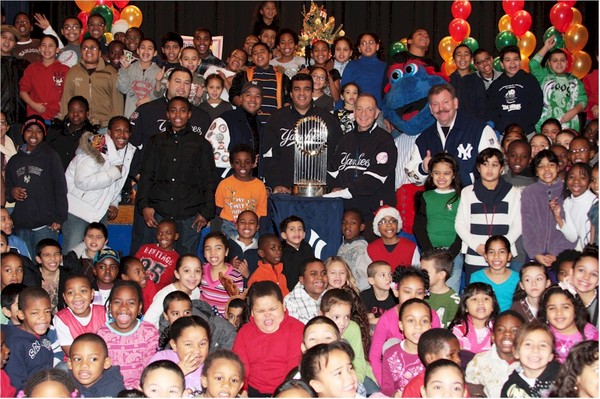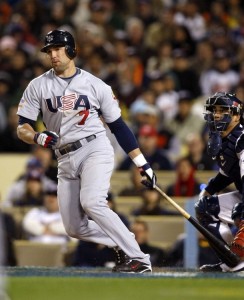According to Ken Rosenthal of Fox Sports, the Giants appear close to signing Mark DeRosa. While the Yankees apparently didn’t make him a primary target, he could have been a serviceable option at the right price. The Giants reportedly had an offer of two years and $12 million on the table, which is probably more than the Yankees want to pay DeRosa, who will turn 35 before the 2010 season starts. If the Yankees plan to add a second-tier outfielder, they’ll now select from a narrower group of candidates.
Should DeRosa and the Giants complete this deal, it could affect another player: Johnny Damon. While Rosenthal notes that the Giants “are expected to use DeRosa at third base,” he could still see plenty of time in the outfield. Pablo Sandoval, the incumbent third baseman, figures to move across the diamond, but could still get in time at third. The Giants are also reportedly close to a one-year deal with Juan Uribe, and while he’s a part-time player, he could still see significant playing time at third, moving DeRosa to the outfield.
Position and playing time aren’t the only reasons the DeRosa signing could affect the Giants’ interest in Damon. There is also the payroll issue to consider. The Giants entered 2009 with a payroll around $82 million, and like many teams they haven’t indicated that they’ll cross that line in 2010. With only $57 million currently committed to the team, it might seem like they have wiggle room. That number, however, covers only six players. Adding DeRosa at the reported $6 million salary makes it $63 million for seven players. Tim Linecum’s arbitration case could make it over $75 million for eight players. With 17 more spots to fill, and a few probably at above the league minimum, the Giants will likely break the $85 million mark at this point. Will they be willing to go above that?
All of this is to say that DeRosa signing with the Giants increases the chances Damon will land back with New York. It doesn’t mean that he will, of course, but it does mean another team off the board for him. Fewer teams means a lower price, which could drive Damon back to New York.
 Brian Cashman does not love this year’s free agent class. He apparently loves next year’s, and he certainly loved last year’s, but that does not appear to be the case this year. A few attractive names topped, and still top, the free agent market, but none of them fit into the Yankees’ plans like Mark Teixeira, CC Sabathia, and A.J. Burnett. Unless he plans a super-stealth acquisition of Matt Holliday, which seems highly unlikely at this point, the Yankees are done shopping the top of the market. It’s time to start looking at the next few tiers for more complementary players.
Brian Cashman does not love this year’s free agent class. He apparently loves next year’s, and he certainly loved last year’s, but that does not appear to be the case this year. A few attractive names topped, and still top, the free agent market, but none of them fit into the Yankees’ plans like Mark Teixeira, CC Sabathia, and A.J. Burnett. Unless he plans a super-stealth acquisition of Matt Holliday, which seems highly unlikely at this point, the Yankees are done shopping the top of the market. It’s time to start looking at the next few tiers for more complementary players.
